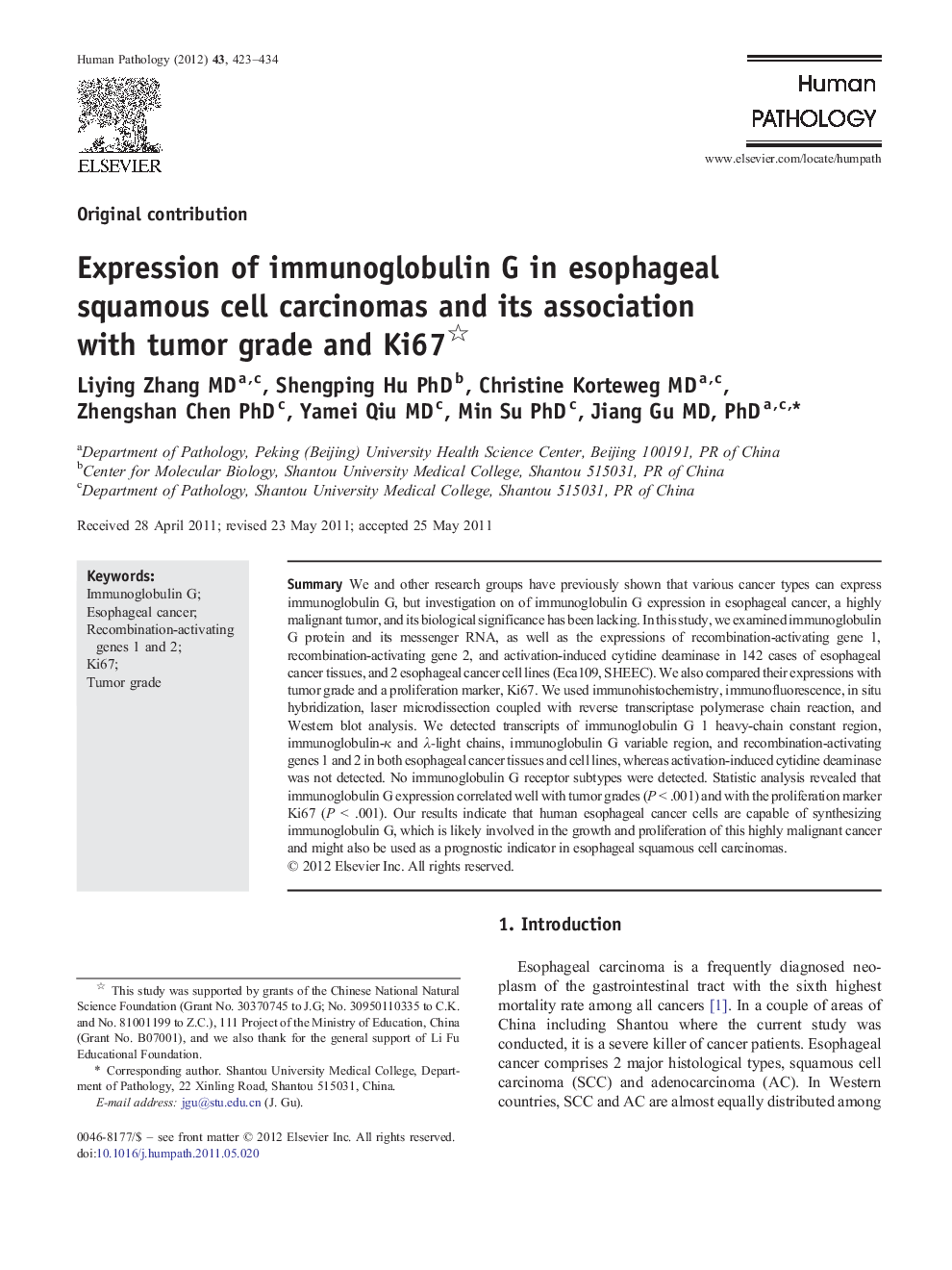| Article ID | Journal | Published Year | Pages | File Type |
|---|---|---|---|---|
| 6216274 | Human Pathology | 2012 | 12 Pages |
SummaryWe and other research groups have previously shown that various cancer types can express immunoglobulin G, but investigation on of immunoglobulin G expression in esophageal cancer, a highly malignant tumor, and its biological significance has been lacking. In this study, we examined immunoglobulin G protein and its messenger RNA, as well as the expressions of recombination-activating gene 1, recombination-activating gene 2, and activation-induced cytidine deaminase in 142 cases of esophageal cancer tissues, and 2 esophageal cancer cell lines (Eca109, SHEEC). We also compared their expressions with tumor grade and a proliferation marker, Ki67. We used immunohistochemistry, immunofluorescence, in situ hybridization, laser microdissection coupled with reverse transcriptase polymerase chain reaction, and Western blot analysis. We detected transcripts of immunoglobulin G 1 heavy-chain constant region, immunoglobulin-κ and λ-light chains, immunoglobulin G variable region, and recombination-activating genes 1 and 2 in both esophageal cancer tissues and cell lines, whereas activation-induced cytidine deaminase was not detected. No immunoglobulin G receptor subtypes were detected. Statistic analysis revealed that immunoglobulin G expression correlated well with tumor grades (P < .001) and with the proliferation marker Ki67 (P < .001). Our results indicate that human esophageal cancer cells are capable of synthesizing immunoglobulin G, which is likely involved in the growth and proliferation of this highly malignant cancer and might also be used as a prognostic indicator in esophageal squamous cell carcinomas.
